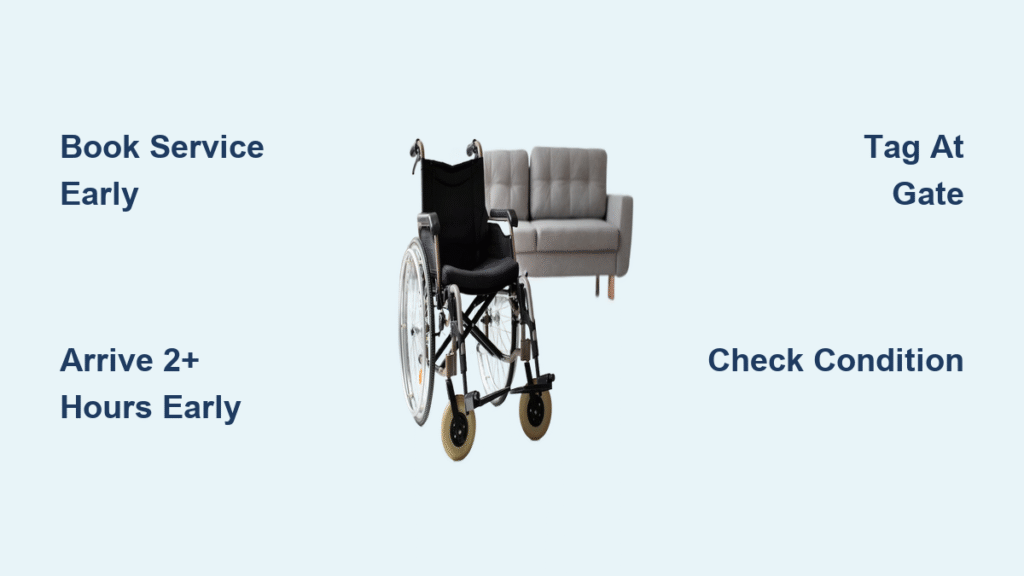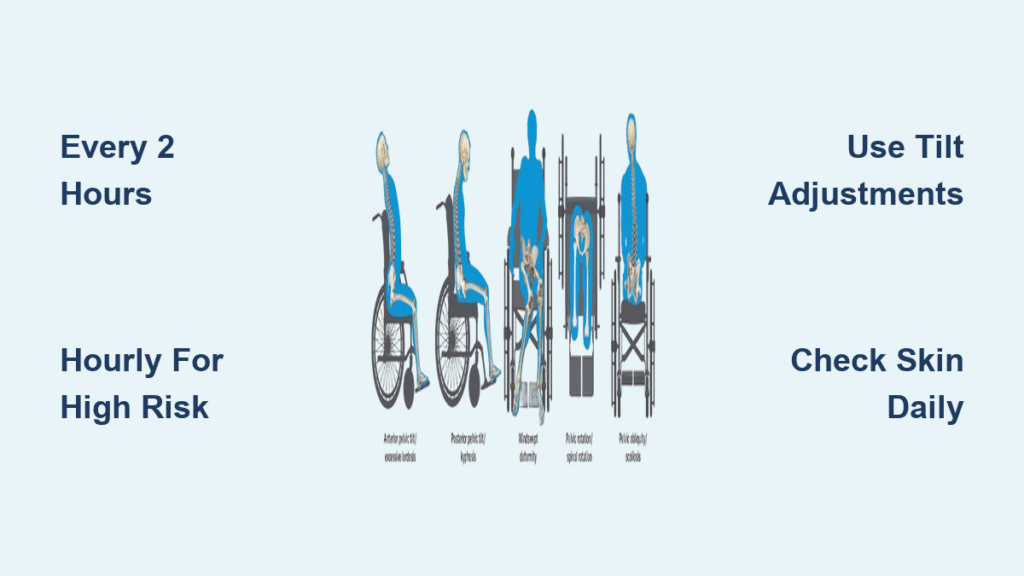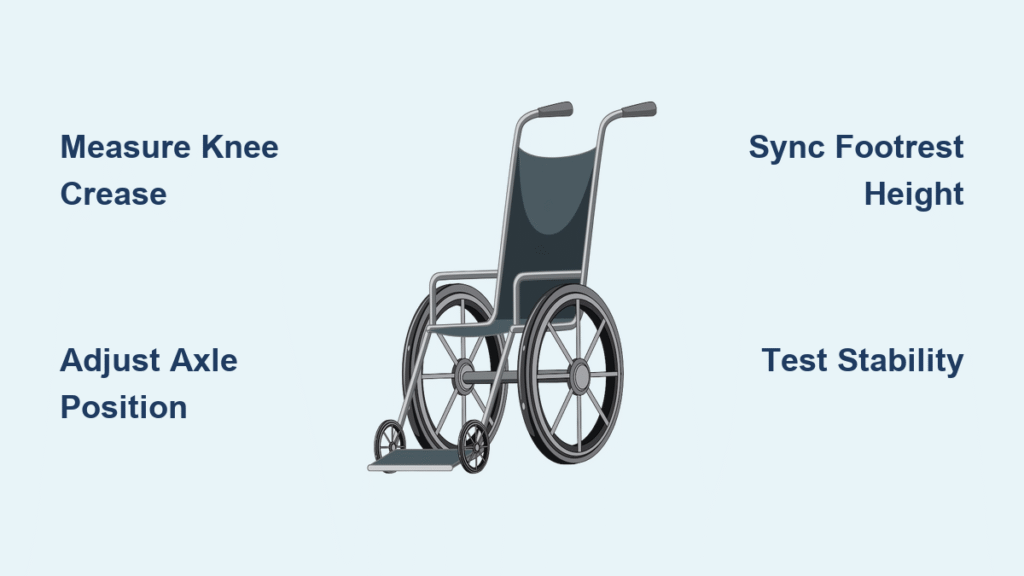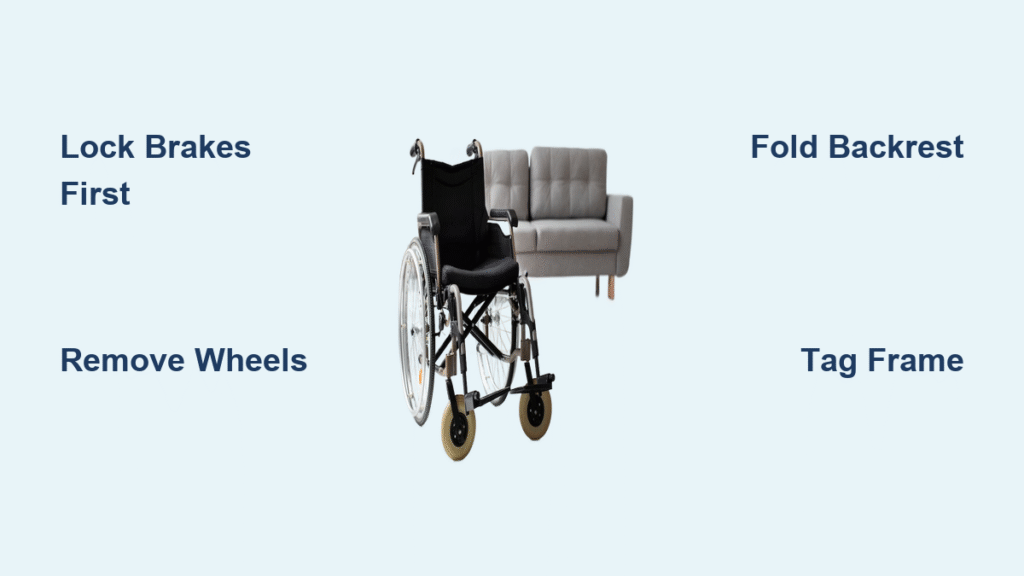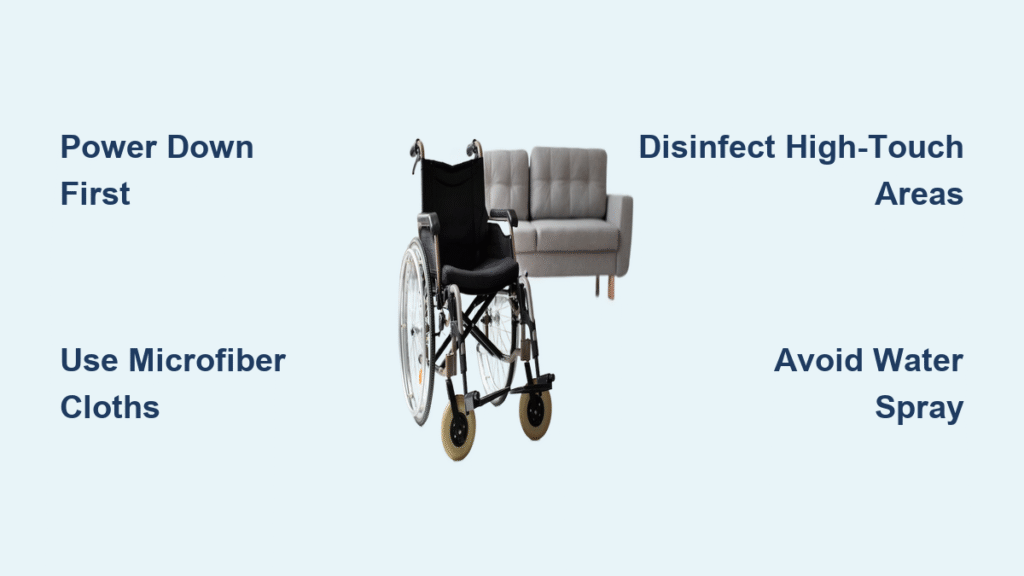Your wheelchair is packed, tickets confirmed, but you’re wondering what actually happens between the curb and the plane. Most wheelchair users discover the check-in process involves more steps than they expected—from battery paperwork to security screening to gate coordination. This guide walks you through exactly how to check in wheelchair at airport without surprises, so you arrive at your seat confident nothing was missed. Whether you’re a frequent flyer or embarking on your first trip, understanding these procedures transforms anxiety into empowerment.
Wheelchair travel requires specific coordination points between you, the airline, airport staff, and security personnel. The good news? Airlines and airports have robust systems in place when you know how to activate them. By following these precise steps for how to check in wheelchair at airport, you’ll navigate the process smoothly while avoiding common pitfalls that cause delays or equipment damage. Let’s break down exactly what happens at each checkpoint so you can travel with complete confidence.
Book Wheelchair Service During Initial Ticket Purchase
Request Assistance When Booking Flights
The single most critical step for how to check in wheelchair at airport happens before you even reach the terminal—request wheelchair service when making your airline reservation. This initial request creates a permanent notation in your reservation that follows you through every connection and your return trip. Airlines treat this as your primary service contract, so skipping it means starting from scratch at the airport with no guarantee of availability. Pro tip: When booking online, look for “special assistance” or “accessibility needs” options during the passenger information section.
Specify Exactly What You Need
Don’t settle for generic “wheelchair assistance”—clearly define your specific requirements. Airlines offer three distinct service levels:
– Curb to gate transport for departure
– Gate to aircraft boarding with aisle chair
– Aircraft to baggage claim upon arrival
– Terminal transfers for connecting flights
Tell the agent precisely what you need. “Gate to gate” sounds complete but might not include boarding assistance. If you require help transferring from your wheelchair to the aircraft seat, explicitly request this. For Phoenix Sky Harbor travelers, mentioning your destination airport triggers ground crew preparation—simply tell your flight attendant during the flight to ensure wheelchair service is ready upon landing.
Arrive Early and Navigate Airport Check-In Points
Use Curbside Check-In for Immediate Assistance
Pull up to departures and look for Sky Caps in red vests—they can issue boarding passes, request wheelchair service on the spot, tag your chair for gate delivery, and collect checked bags. No Sky Cap available? Head inside to any airline counter on the ticketing level where staff can arrange wheelchair service even without advance booking. Critical timing: Arrive at least 2 hours before domestic flights to allow for the additional coordination required for how to check in wheelchair at airport.
Phoenix Sky Harbor Terminal-Specific Check-In
At Phoenix Sky Harbor International Airport:
– Terminal 3: Use doors 1-3 for consistent Sky Cap availability
– Terminal 4: Doors 1-4 have dedicated wheelchair assistance
– All terminals: Inside airline counters provide backup service requests
If you’re flying into Phoenix, inform your flight attendant during the flight—this triggers ground crew preparation for your wheelchair service upon arrival. Don’t assume your pre-booking covers everything; this mid-flight notification is essential for seamless service at Phoenix Sky Harbor.
Navigate Security Screening Without Delays
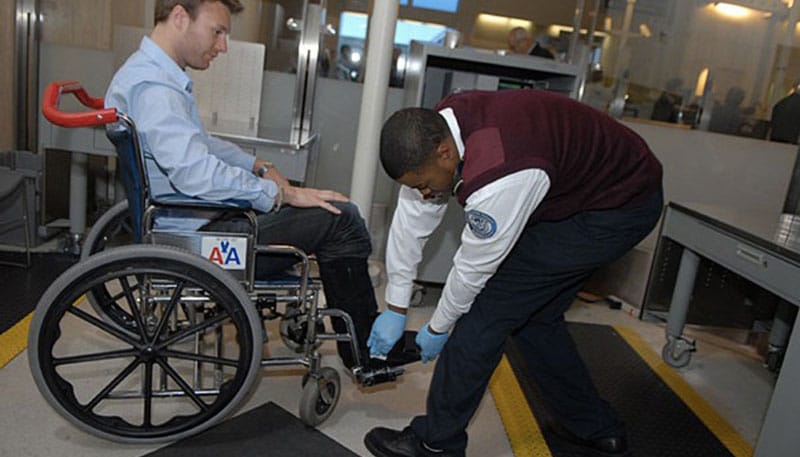
Contact TSA Cares Before Your Trip
Call TSA Cares at 1-855-787-2227 or complete their online form at least 72 hours before departure. This triggers dedicated officer assignment, expedited screening lane access, and coordination with gate staff. Save this number in your phone as “TSA Help” for emergencies. At Phoenix Sky Harbor specifically, Passenger Support Specialist (PSS) officers provide personalized guidance through security—mention you’ve contacted TSA Cares to ensure you receive this specialized assistance.
Wheelchair Security Screening Process
Your wheelchair undergoes specialized security procedures:
1. You transfer to a TSA wheelchair or walk through the metal detector
2. Your chair gets swabbed for explosive residue
3. Battery inspection for power chairs (bring specs in carry-on)
4. Quick reunion at screening exit
Critical mistake to avoid: Don’t disconnect power wheelchair batteries before security—they must remain connected until gate check-in. TSA needs to verify battery type (wet cell, dry cell, or lithium-ion) while connected to your chair.
Complete Gate Check-In for Wheelchair Delivery
Final Wheelchair Tagging and Documentation
Approach the gate podium immediately upon arrival. Agents will confirm your service request, add gate delivery tags to your chair, provide a claim ticket (keep this!), and coordinate boarding order. This is your last chance to verify all tags are properly attached—don’t board without confirming your wheelchair has both fragile stickers and gate delivery tags.
Power Wheelchair Battery Disconnection Protocol
For power wheelchair users, gate staff will request you:
– Disconnect battery terminals yourself
– Secure loose cables
– Provide disconnection instructions to crew
Important: Airlines won’t disconnect batteries due to liability concerns—bring your own tools and know your chair’s disconnection process. Keep battery specifications in your carry-on for verification during security and gate check-in.
Board the Aircraft and Ensure Proper Wheelchair Handling
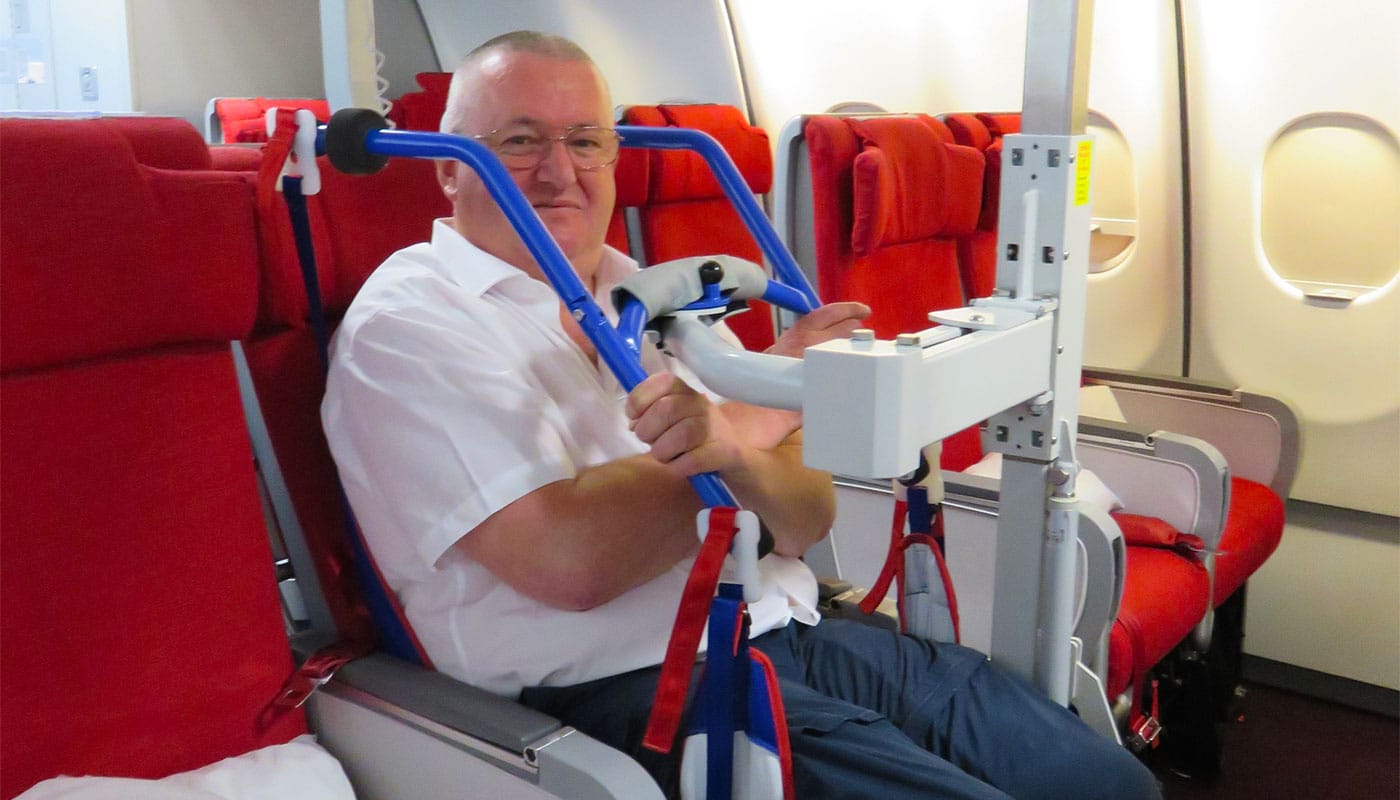
Pre-Boarding Process for Wheelchair Users
Wheelchair users board first through a specific procedure:
– Gate agents call your name before general boarding
– You transfer to an aisle chair for narrow aircraft doors
– Flight attendants assist with seat transfer
– Your wheelchair gets stored in cargo as priority item
Pro tip: During boarding, visually confirm your wheelchair is placed upright with secure straps—this prevents damage during flight. Ask the crew to note any special handling requirements on your claim ticket.
Verify Wheelchair Condition Upon Arrival
Upon landing, tell flight attendants you’re flying into Phoenix to trigger ground crew preparation. Wait for other passengers to deplane, then:
– Confirm wheelchair delivery to aircraft door
– Test all chair functions before leaving gate area
– Immediately report any damage to airline staff
Don’t accept a damaged wheelchair—file a Property Irregularity Report (PIR) before leaving the gate area. At Phoenix Sky Harbor, ground transportation options include Dial-A-Ride (Terminals 3/4), accessible taxis, PHX Sky Train connections, and hand control rentals with advance notice.
Handle Service Failures with Effective Backup Strategies

Immediate Actions When Wheelchair Service Fails
If your wheelchair doesn’t appear upon arrival:
1. Contact gate agent immediately—don’t leave the gate area
2. Call airport accessibility: 602-273-2722 for Phoenix Sky Harbor
3. Use information desks for paging tablets to locate staff
4. File ADA complaint if needed: skyharbor@phoenix.gov
Critical window: Report issues within 24 hours for strongest resolution. Document everything with photos, times, and staff names—this creates a paper trail if escalation becomes necessary.
Technology Backup Solutions
Download these essential apps before travel:
– Aira: Free visual interpreting throughout Phoenix Sky Harbor
– Airline app: Real-time gate updates and wheelchair tracking
– TSA app: Security wait times and procedure guides
Aira is particularly valuable at Phoenix Sky Harbor—it’s available free throughout Terminals 3/4, the PHX Sky Train, and Rental Car Center. Create your profile before arrival for seamless access to visual interpreting services.
Essential Pre-Travel Checklist for Successful Wheelchair Check-In
Before leaving home:
– [ ] Request wheelchair service during flight booking
– [ ] Contact TSA Cares 72+ hours before departure
– [ ] Pack battery specifications in carry-on
– [ ] Download Aira app and create profile
At the airport:
– [ ] Arrive 2+ hours early for domestic flights
– [ ] Confirm all gate delivery tags are properly attached
– [ ] Keep claim ticket accessible at all times
– [ ] Verify wheelchair condition before leaving gate area
During travel:
– [ ] Inform flight attendant of wheelchair needs when flying into Phoenix
– [ ] Visually confirm proper wheelchair storage before boarding
– [ ] Test all chair functions immediately upon delivery
Your success with how to check in wheelchair at airport depends on three principles: request early, communicate clearly at every touchpoint, and document everything. Airlines and airports have systems designed to support wheelchair users—when you know how to activate them properly. By following these precise steps, you transform what many consider a stressful process into a seamless travel experience. Remember that Phoenix Sky Harbor and other major airports provide dedicated resources; don’t hesitate to ask for the Passenger Support Specialist officers who specialize in disability assistance. With this knowledge in hand, you’re prepared for stress-free air travel regardless of your destination.

